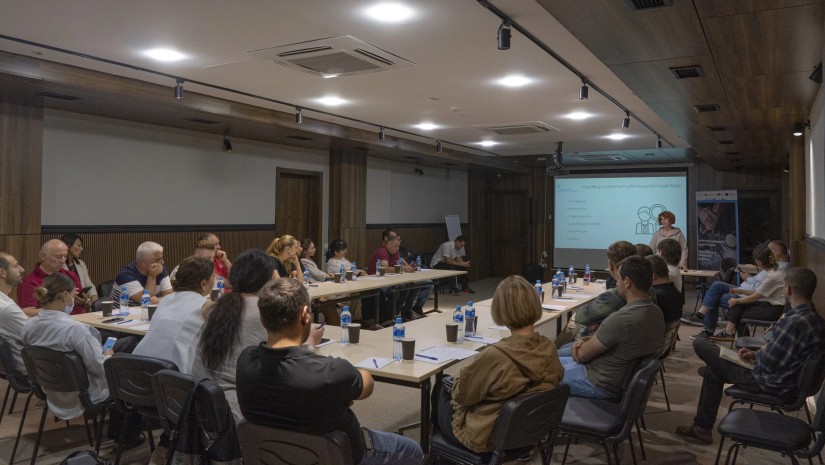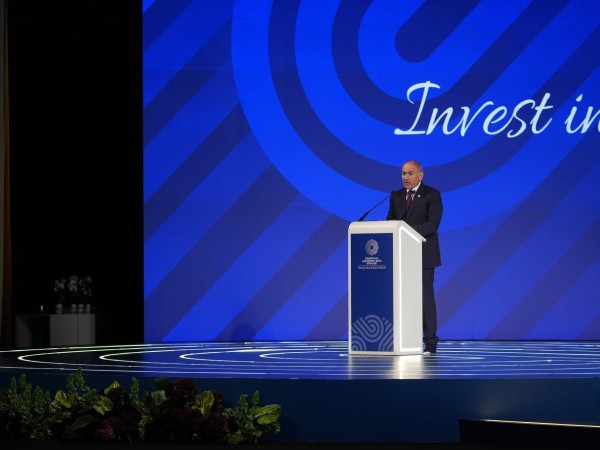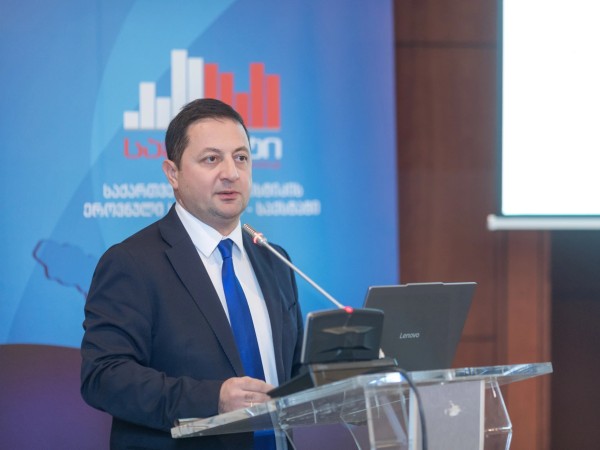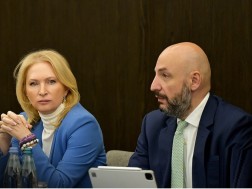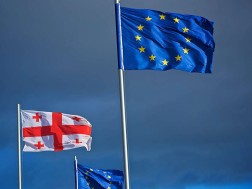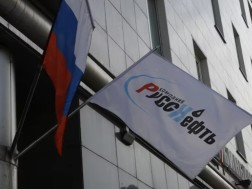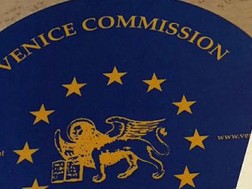Tbilisi (GBC) - In September 2024, in Mtskheta and Gori, under the European Union (EU) and Sweden-funded European Neighbourhood Programme for Agriculture and Rural Development (ENPARD) IV, the Food and Agriculture Organisation of the United Nations (FAO) organised a series of food safety training sessions. The educational meetings were led by experts from the National Food Agency (NFA) and attended by representatives of the local Hotel, Restaurant, and Café/Catering (HoReCa) and meat sectors. The training sessions were held with the aim of supporting food business operators in enhancing the safety and quality of animal-origin products.
During the capacity-building sessions, the NFA experts focused on meat labelling, food safety standards in public catering, and Georgian legislation on food safety. During the interactive presentations and discussions, the private sector representatives had the opportunity to learn more about ensuring safe and healthy food item production for their consumers.
Under the EU and Sweden-funded ENPARD IV, FAO has been sharing knowledge on food safety with food business operators for the past two years. The organisation's extension team has already trained over 1,000 staff members of 40 private companies working with animal-origin products, fruit juices, ready-to-eat products, and vegetable value chains on good hygiene and sanitation practices, prerequisites, and HACCP. Moreover, the FAO in Georgia continues to conduct assessment visits to food processing facilities to provide assistance to quality control managers regarding food safety measures.
Within the framework of ENPARD IV, in partnership with NFA, FAO will continue to offer more training and consultancy opportunities to the country’s private sector in the coming year in close cooperation with the Czech Development Agency, supporting the National Food Agency services delivery in compliance with EU standards.
“Providing such guidance to the Georgian private sector ensures that Georgian consumers have improved access to animal-origin and other food products that are healthy and safe to consume. Enhanced efforts for the implementation of advanced food safety measures in HoReCa facilities can only bring positive impacts on the competitiveness of the private sector and on the country’s tourism sector, as this is key to improve the local regional circular economy, trust and loyalty of domestic as well as international travellers,” says Denis Reiss, Programme Officer for Sustainable Food Systems at the Delegation of the European Union to Georgia.
“Implementing and complying with the highest standards of food safety and quality requires knowing what they are and how to implement them. FAO’s training opportunities offer such knowledge to Georgian businesses engaged in delivering safe and healthy food products to their consumers and guests, in the case of the HoReCa sector. FAO, under the ENPARD IV funded by the EU and Sweden, will keep delivering such training opportunities to ensure that the food business operators in the country are better equipped to meet today’s food safety requirements and hence ensure the delivery of products that are of highest standards,” says Guido Agostinucci, the FAO Programme Manager.
About the European Union
For more than 30 years, the European Union has built a close partnership with Georgia, supporting its development through knowledge and experience sharing, expertise, innovation and financial support. The relationship between the EU and Georgia is based on shared values of peace, freedom, democracy, human rights and inclusive economic growth. More about the EU’s support in Georgia https://eu4georgia.eu/the-european-union-in-georgia/
About ENPARD
The European Union supports rural development in Georgia through its ENPARD Programme. Aiming to reduce rural poverty, ENPARD has been implemented since 2013. The Programme started by supporting the development of national agriculture potential. Subsequently, it also concentrated on creating economic opportunities for rural populations in Georgia. Since 2021, the Programme has also been working on improving food safety in the country, with additional support from Sweden and with FAO and the Czech Development Agency as the main implementers of this food safety component under ENPARD IV.

